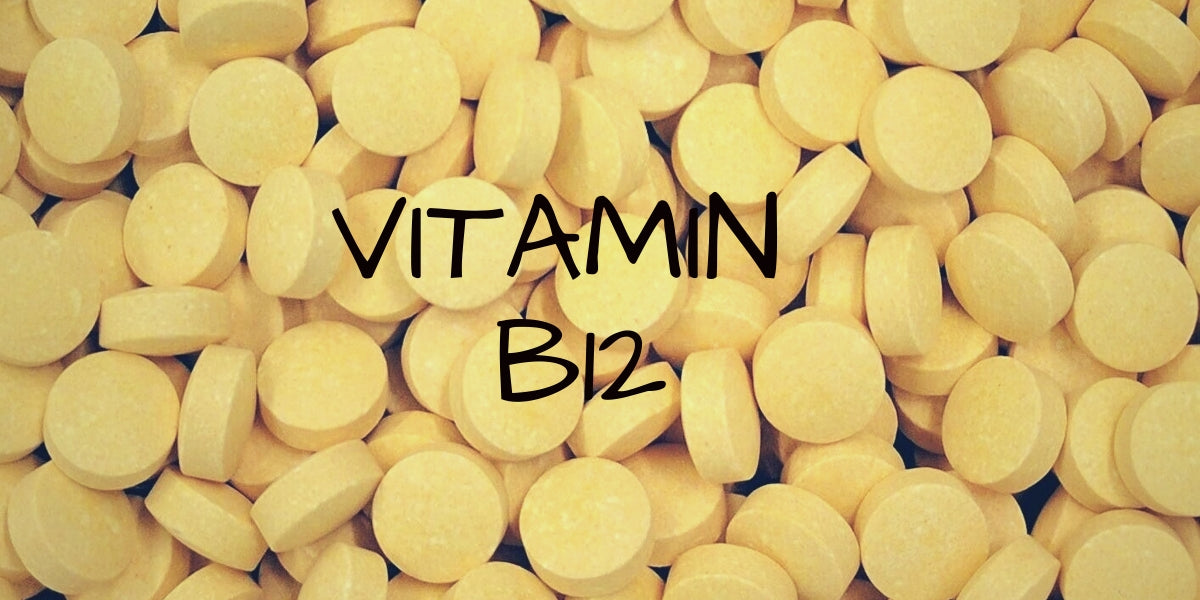
Let's talk about Vitamin B12
Do you get enough vitamin B12? You’ll want to make sure that you do, in order to stay healthy.
Vitamin B12 does a lot of things for your body. It helps make your DNA and your red blood cells, for example.
Since your body doesn't make vitamin B12, you must get it from animal-based foods or from supplements.
And you should do that on a regular basis, because your body doesn’t store vitamin B12 for a long time.
How Much to Get?
The answer depends on things including your age, eating habits and medical conditions, and what medications you take.
The average recommended amounts, measured in micrograms (mcg), vary by age:
- Infants up to age 6 months: 0.4 mcg
- Babies age 7-12 months: 0.5 mcg
- Children age 1-3 years: 0.9 mcg
- Kids age 4-8 years: 1.2 mcg
- Children age 9-13 years: 1.8 mcg
- Teens age 14-18: 2.4 mcg (2.6 mcg per day if pregnant and 2.8 mcg per day if breastfeeding)
- Adults: 2.4 mcg (2.6 mcg per day if pregnant and 2.8 mcg per day if breastfeeding)
Food Sources of Vitamin B12
You can get vitamin B12 in animal foods, which have it naturally, or from items that have been fortified with it.
Animal sources include dairy products, eggs, fish, meat, and poultry. If you’re looking for a food fortified with B12, check the product’s Nutrition Facts label.
Vitamin B12 Deficiency
Most people get enough of this nutrient through their diet.
If you’re not sure, you can ask your doctor if you should get a blood test to check your vitamin B12 level.
With age, it can become harder to absorb this vitamin. It can also happen if you have had weight loss surgery or another operation that removed part of your stomach, or if you drink heavily.
You may also be more likely to develop vitamin B12 deficiency if you have:
- Atrophic gastritis, in which your stomach lining has thinned
- Pernicious anemia, which makes it hard for your body to absorb vitamin B12
- Conditions that affect your small intestine, such as Crohn's disease, celiac disease, bacterial growth, or a parasite. Also Immune system disorders, such as Graves' disease or lupus
- Been taking certain medications that interfere with the absorption of B12. This includes some heartburn medicines including proton pump inhibitors (PPIs), H2 Blockers and certain diabetes medicines
You can also get vitamin B12 deficiency if you follow a vegan diet (meaning you don't eat any animal products, including meat, milk, cheese, and eggs) or you are a vegetarian who doesn't eat enough eggs or dairy products to meet your vitamin B12 needs. In both of those cases, you can add fortified foods to your diet or take supplements to meet this need.
Pregnant or New Mom?
Are you a pregnant woman on a vegan or vegetarian diet, and plan to only breastfeed your baby? You should talk to your doctor before you have your baby, so that you have a plan in place for how you’ll get enough vitamin B12 to keep your baby healthy.
Without enough vitamin B12, your baby could have developmental delays and not thrive and grow like he should.
Symptoms of Vitamin B12 Deficiency
If you have vitamin B12 deficiency, you could become anaemic. A mild deficiency may cause no symptoms. But if untreated, it may lead to symptoms such as:
- Weakness, tiredness, or lightheadedness
- Heart palpitations and shortness of breath
- Pale skin
- A smooth tongue
- Constipation, diarrhoea, loss of appetite, or gas
- Nerve problems like numbness or tingling, muscle weakness, and problems walking
- Vision loss
- Mental problems like depression, memory loss, or behavioural changes
Treatment
If you have pernicious anaemia or have trouble absorbing vitamin B12, you'll need shots of this vitamin at first. You may need to keep getting these shots, take high doses of a supplement by mouth, or get it nasally after that.
If you don’t eat animal products, you have options. You can change your diet to include vitamin B12-fortified grains, a supplement or B12 injections, or a high-dose oral vitamin B12 if you are deficient.
Older adults who have a vitamin B12 deficiency will likely have to take a daily B12 supplement or a multivitamin that contains B12.
For most people, treatment resolves the problem. But any nerve damage that happened due to the deficiency could be permanent.
Prevention
Most people can prevent vitamin B12 deficiency by eating enough meat, poultry, seafood, dairy products, and eggs.
If you don't eat animal products, or you have a medical condition that limits how well your body absorbs nutrients, you can take vitamin B12 in a multivitamin or other supplement and foods fortified with vitamin B12.
If you choose to take vitamin B12 supplements, let your doctor know, so he or she can tell you how much you need, or make sure they won't affect any medicines you're taking.
